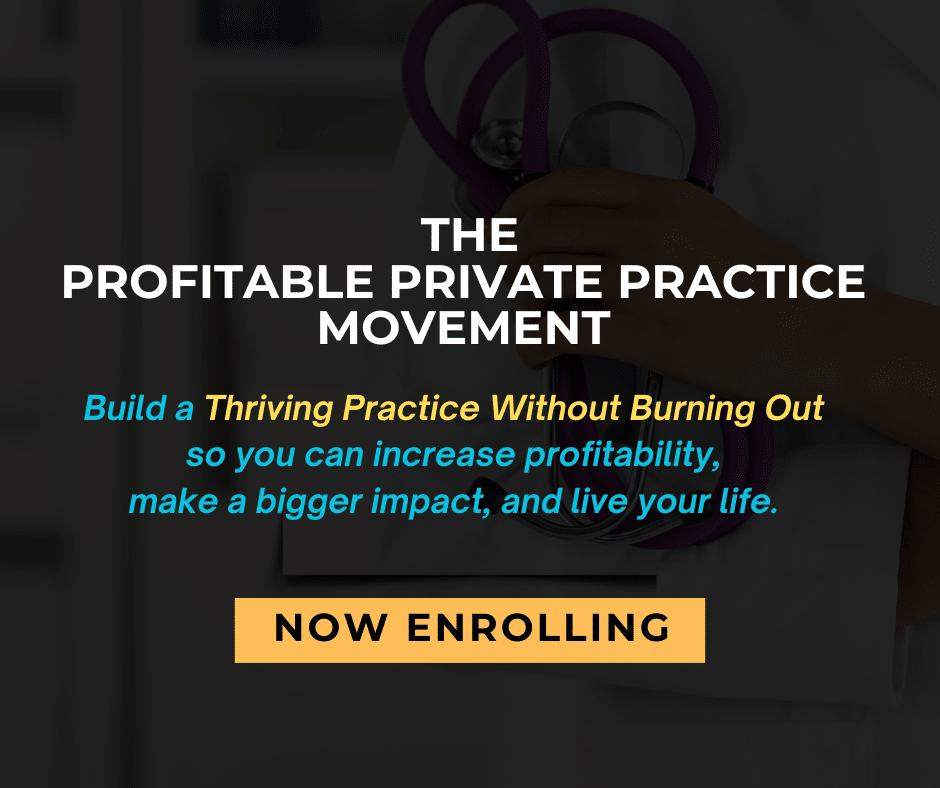
In today’s post, I’m just going to start with the quick answer. No. Or, yes. Okay, really, yes and no.
It’s 2022, and innovation is everywhere. Even digital scales have been reimagined, and that’s just the tip of the iceberg. Everywhere you look, we’re taking another look at how things work and seeing how they can work smarter, better, and faster.
The healthcare industry is full of dramatic new changes and disruptive startups that ask (and answer) the question: Isn’t there a better solution? It’s no wonder. Healthtech (digital health market) is among the most funded and rapidly growing industries among startups across the board.
Beginner entrepreneurs can understandably believe that launching a startup in the medical sector is a relatively easy undertaking with a high chance for success. The digital health market alone is expected to be worth $551.09 billion by 2027, up from its current value of $220.16 billion.
But the reality is that the medical industry is one of the toughest areas for launching a startup. If you are thinking about creating a healthcare startup, there are some important, industry-specific things to consider. Factors like strict legal rules, high security standards, and complex healthcare relationships make getting into the market hard for most businesses hungry to get into the game.
Launching an innovative healthcare startup may not be easy, but the world is ready for change, and the potential rewards are huge. Two things to keep uppermost in your mind are:
- You can’t do this alone. Know that you’ll need to gather a team of experts in multiple disciplines.
- Medical regulations will rule your life. You cannot get around them.
The good news about whether you need a medical degree to create a healthcare startup is that you will need someone on your team who has a medical degree. It may or may not be you. If you’re a medical professional, you’ll need to partner closely with a host of support to fill in the pieces you don’t have. If you’re tech-savvy or have startup skills outside the medical industry, you’ll want to bring someone intimately familiar with the medical world on board.
Startups for Good
There’s so much opportunity to do good by serving our aging American population and helping those struggling with the national drug crisis. There are many new medical advances and an ever-growing interest in health and wellness. These are all excellent incentives for dedicated entrepreneurs and medical professionals.
While we’re probably not familiar with the startup world as medical professionals, we bring invaluable knowledge of the incredibly complex healthcare system to the table. We know how money moves, how incentives work, and which regulations apply in which circumstances.

We also have relationships with institutions, which can help find early customers. Our thorough understanding of medical problems gives us valuable starting points for making an impact with startups in this space.
That said, we can’t just make the leap from caregivers to CEOs without business experience, and we need partners who know how to navigate the complex world of startup culture.
Creating a Healthcare Startup
Startups have the advantage of being agile. They can develop innovative solutions much quicker than established companies with more stakeholders. More stakeholders may take longer to approve new ideas and give the go-ahead on projects.

One of the outcomes of the last two years is that it became glaringly obvious that our healthcare system wasn’t set up to handle a pandemic and the medical community had to move quickly with whatever information it had. It’s been a revelation to see that while the medical industry’s biggest players couldn’t necessarily deal with this massive crisis, startups quickly got up and running with solutions.
The rapid and innovative response to COVID-19 challenges has created a new expectation of how a good, problem-solving idea can launch and start to work without getting bogged down in years of paperwork and startup costs.
Start With The Problem
According to a 2017 article in Entrepreneur, the most successful entrepreneurs are those who start by finding a big problem and then work to find a solution. Few entrepreneurs sit down with a blank piece of paper and noodle up ideas that people may just fall in love with.
Airbnb got its quick and explosive start in just this way. Two broke and unemployed newcomers to San Francisco were having trouble getting work and needed to find a way to pay the rent. At the same time, a local design conference was creating a run on hotel rooms, resulting in attendees scrambling for places to stay.
Brian Chesky and Joe Gebbia bought a few blow-up mattresses and offered visitors a place to sleep and breakfast in the morning. Their first three guests paid them $240 in total, and 12 years later, Airbnb (minus the airbeds) was worth an estimated 25.5 billion.
Of course, healthcare is a hugely complex industry and one with complicated pain points and potential solutions. You’ll have to do a lot of homework, including exploring medical research papers, interviewing physicians and patients, and specific areas of the healthcare market. Are the pain points your idea addresses significant enough to warrant a solution?

While you can trace a direct line between Airbnb’s creator’s big problem to their billion-dollar solution, adaptability is crucial in identifying a market-worthy solution to a problem people pay to have resolved.
Nokia started as a paper company that morphed into a producer of rubber tires and boots to become the top cell phone provider in the world between 1998 and 2012. They reinvented themselves based on changing available resources, market demand, and competition.
Some good questions to ask yourself when considering your solution-based problem:
- Why would someone use my particular solution?
- Will my solution make their lives easier or more complicated?
- What does my solution offer that other solutions in the market don’t
Three Kinds of Innovation
Three kinds of innovation could make health care better and cheaper:
- Change the ways consumers buy and use health care.
- Use technology to develop new products and treatments or otherwise improve care.
- Generate new business models, particularly those that involve the horizontal or vertical integration of separate health care organizations or activities.
Consumers want a good product that’s easy to use. Patients want the same thing — quality care at a good price. And more and more healthcare consumers want to be empowered in their medical care.
They want more convenient, more effective, and less expensive treatments. They want to choose a health plan that gives them greater control over their personal health care spending. And they want these services to be user-friendly.
Technology is the sweet spot when it comes to healthcare startups, as digital health is no longer a fantasy; it’s a reality. Existing technologies can spark inspiration for applying those technologies to healthcare and fitness.
New drugs, diagnostic methods, drug delivery systems, and medical devices offer the hope of better treatment and care that is less costly, less disruptive, and less painful.

Technology created implanted sensors that help patients monitor their diseases more effectively. And IT innovations connected the many islands of information in the health care system to vastly improve quality and lower costs.
The business of healthcare is still a strangely fragmented industry. The largest percentage of US physicians work in practices of three or fewer doctors; 60% of the nation’s 5,000 community hospitals and nearly 70% of its 15,600 nursing homes are independent. And the medical device and biotechnology sectors are made up of thousands of small firms.
Innovative business models, especially those that integrate health care activities, can increase efficiency, improve care, and save consumers time. You can roll several independent players up into a single organization—horizontal integration—to generate economies of scale.
If you can bring the treatment of a chronic disease under one roof — vertical integration — the treatment can be made more effective and convenient. For example, economies of scale come into play by connecting generalists and specialists of cancer patients.
You Can’t Do This Alone
A new healthcare venture will likely require two different types of affiliation. The first is the team working on the ground for the enterprise on everything from finance to marketing and operations and to customer service. Most doctors are better suited to product development or even roles like chief science officer or chief medical officer than positions in business operations.
The second type of affiliation includes corporate and government players — hospitals, insurers, pharmaceutical companies, and regulators.

Bigger players in the industry don’t see startups as a threat. They see them as key to a successful future, for the medical industry, and for patients everywhere. According to Jeff Semenchuk, Blue Shield of California’s CIO, revisioning health care services in America is part of a startups’ role.
He also thinks the goal is not to continue doing things the same way in the healthcare system as we know it today but to reimagine healthcare services in America. Startups have a big role to play in that, and Blue Shield of California is stepping up their investments in startups to make sure they help.
Medical Regulations
Healthcare is, rightly so, one of the most highly regulated industries on the planet. It’s been described as a “complex, multisided ecosystem that is riddled with the possibility of making costly mistakes.”
These potential mistakes aren’t only costly; they can also sometimes be fatal. By some accounts, medical errors are the third-leading cause of death after heart disease and cancer in the US. It is devastatingly fatal when it comes to human lives; still, some mistakes can also be catastrophic from a business perspective.
Regulation plays a major role in the healthcare industry and health care insurance coverage. Different regulatory bodies protect the public from many health risks and provide programs for public health and welfare.
United States health agencies (with Congressional oversight) develop laws that are in place to protect public wellbeing. The US Department of Health and Human Services (HHS) mission is to “enhance the health and wellbeing of all Americans, by providing for effective health and human services and by fostering sound, sustained advances in the sciences underlying medicine, public health, and social services.”
Some important regulatory bodies a US healthcare startup will need to work with include the State Offices of Health Care Quality which is responsible for certifying and licensing all the health care and community long-term care facilities. The Centers for Medicare and Medicaid (CMS) supervise and regulate the provisions linked to the healthcare system, providing care at a subsidized rate through different programs.

These include Medicare for older people and the disabled, Medicaid for low-income individuals and families, and the State Children’s Health Insurance Program (SCHIP) for the under-19 population. It also monitors compliance with the Health Insurance Portability and Accountability Act (HIPAA).
Another is the Agency for Healthcare Research and Quality (AHRQ), part of the US Department of Health & Human Services (HHS), which works to boost healthcare quality and improve patient safety at a lower cost.
The HHS also heads other regulatory departments, including the Centers for Disease Control and Prevention (CDC) in Atlanta, which monitors public health for congenital disabilities, physical disabilities, genetics, environmental health, injury, violence, and travel guidelines. It also looks into possible infectious outbreaks.
The Food and Drug Administration (FDA) is a federal agency that oversees the drug supply to the USA for safety and efficacy. The Environmental Protection Agency (EPA) is a federal agency concerned with making and enforcing regulations that protect the environment based on existing laws.
These are the medical regulators who will rule your startup’s life. You cannot get far without their approval, and your idea will come to a screeching halt if they disapprove.
Mobile Tech
With more and more of the healthcare world getting eaten up by tech, it might be worth getting into the game. According to Eyal Geffen, the managing partner of Sky Ventures Group, we’re desperate for connection in our healthcare. A society that has become accustomed to instantaneous communication and easy access to information naturally craves these things in their healthcare experiences, and that’s why mobile healthcare tech is leading the industry.
A study from Rock Health showed that 80% of consumers have adopted at least one digital health technology, and that number is only continuing to rise. In addition, new uses of existing technologies, like secure text messaging, have made it possible to streamline health communication while protecting patient privacy.

While it’s clear you may not need a medical degree to create a healthcare startup, it’s crystal clear that you will be hard-pressed to do so without having a medical professional at the very heart and core of the company.
As doctors, we’re passionate about helping people. And with today’s healthcare industry in the shape it is, many of us are also passionate about practicing medicine on our own terms — building a business of impact and living lives where we also get to flourish.
I believe the secret to accomplishing all of these goals is in changing from being an MD to becoming an EntreMD. Learning about the business of being a doctor gives you the power to practice medicine on your own terms.
So, if you want to start or grow your patient list substantially, increase your revenue significantly, and impact your patients’ lives forever, check out what my clients have to say about working with me.


